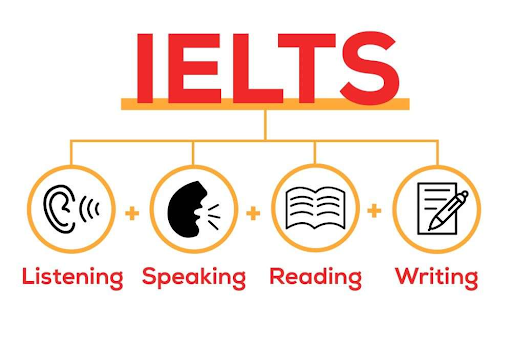
Preparing for the IELTS exam can be a daunting task, but having a well-structured IELTS study plan can make all the difference. This article aims to provide readers with a comprehensive approach to IELTS preparation, helping them develop effective study habits, manage their time efficiently, and ultimately achieve their desired score. With the right strategies in place, anyone can improve their IELTS speaking skills, reading comprehension, and writing abilities. This article is a valuable resource for anyone looking to navigate their IELTS journey successfully and should be considered a go-to guide for all IELTS aspirants.
Understanding the IELTS Exam Structure
The IELTS (International English Language Testing System) is a globally recognized test that assesses English proficiency in four key areas: Listening, Reading, Writing, and Speaking. Understanding the structure of the IELTS exam is crucial for effective preparation. Each section of the test is designed to evaluate different skills, and knowing what to expect can significantly enhance performance.
The IELTS Listening section consists of four recordings, each followed by a set of questions. Test-takers must listen carefully to the audio while answering questions that range from multiple-choice to short answer. In the IELTS Reading section, candidates are presented with three texts of varying lengths and complexities, followed by questions designed to test comprehension. The IELTS Writing component includes two tasks: Task 1 requires candidates to summarize visual information, while Task 2 involves writing an essay in response to a point of view or argument. Lastly, the IELTS Speaking test is a face-to-face interview with an examiner that assesses spoken English through a series of questions and tasks.
Familiarizing oneself with the exam format and question types is a vital step in creating an effective IELTS study plan. It allows students to identify their strengths and weaknesses, ultimately guiding their study focus. Moreover, using IELTS preparation courses, such as those offered by the British Council, can provide additional insights into the exam structure and help learners develop effective strategies.
Read More: IELTS Test: Complete Guide

Setting Realistic Goals for IELTS Preparation
One of the most important steps in preparing for IELTS is to set realistic goals. Understanding the score you need and what it entails can help tailor a study plan to meet those specific requirements. For instance, if a candidate aims for a band score of 7 or higher, they need to focus on achieving a high level of proficiency in all test sections.
When creating an effective IELTS study plan, it’s essential to assess one’s current level of English. This assessment helps identify strengths and weaknesses, which can be addressed through targeted study materials and practice. Setting achievable goals, such as improving specific speaking skills or mastering IELTS writing tasks, can keep motivation high throughout the preparation process.
For example, if a student struggles with IELTS writing task 2, they might set a goal to write at least one essay per week, incorporating feedback from teachers or peers. Utilizing resources like the British Council can offer valuable insights and sample answers to enhance writing skills. Additionally, setting short-term and long-term goals can help track progress, ensuring that the student remains focused and motivated.
Developing a Well-Structured Study Plan
Creating a well-structured study plan is essential for effective IELTS preparation. An effective IELTS study plan should include a balanced focus on all four sections of the test. This can be achieved through a combination of study materials, practice tests, and revision sessions.
Begin by allocating specific study times for each section, ensuring that there is sufficient time dedicated to IELTS listening, reading, writing, and speaking. A sample study schedule might look like this: Mondays and Wednesdays for listening and reading, Tuesdays and Thursdays for writing and speaking, and Fridays for mock tests. Saturdays can be reserved for reviewing mistakes and addressing weaknesses identified during the week.
Incorporating a variety of study materials is also crucial. Using IELTS preparation books, online resources, and practice tests can provide a well-rounded approach. For those looking to improve their IELTS speaking skills, engaging in conversation with native speakers or participating in speaking clubs can be highly beneficial. Students can also take advantage of online courses, such as those offered by the British Council, to gain access to expert guidance and additional practice materials.

Practicing with Mock Tests
Mock tests are a critical component of any effective IELTS study plan. They provide a simulated exam experience, allowing candidates to familiarize themselves with the time constraints and pressure of the actual test. Practicing under exam conditions can help reduce anxiety and improve performance on the day of the IELTS exam.
To make the most of practice tests, candidates should use official IELTS practice materials whenever possible. These tests reflect the actual exam format and question types, providing a more accurate representation of the test experience. After completing a mock test, students should thoroughly review their answers, identifying areas for improvement. Analyzing mistakes can reveal patterns in weaknesses, enabling students to focus their study efforts more effectively.
For example, if a candidate consistently scores low in the IELTS reading test, it may indicate a need to improve reading speed or comprehension strategies. Students can then allocate additional study time to practice reading passages, improve vocabulary, and develop effective reading strategies.
Enhancing IELTS Speaking Skills
The IELTS speaking test can be particularly challenging for many candidates. It consists of three parts, with the examiner assessing pronunciation, fluency, and coherence. To prepare effectively, students should engage in regular speaking practice, focusing on the types of questions commonly found in the exam.
Incorporating IELTS speaking practice into daily routines can lead to significant improvements. Candidates can practice answering common IELTS speaking topics, recording themselves, and reviewing their performance. This self-assessment allows students to identify areas for improvement, such as pronunciation and vocabulary usage.
Moreover, students can benefit from enrolling in an IELTS preparation course that focuses specifically on speaking skills. Courses offered by the British Council often include interactive speaking sessions and feedback from experienced IELTS instructors. Participating in group discussions or language exchange programs can also provide valuable speaking practice in a supportive environment.
Mastering IELTS Writing Tasks
The IELTS writing task 2 is an essential component of the exam, requiring candidates to construct a coherent essay in response to a prompt. To excel in this section, students must develop strong writing skills, including the ability to formulate clear arguments and use appropriate vocabulary.
To improve writing skills, candidates should practice writing essays on various topics, utilizing sample questions from past IELTS exams. It’s essential to focus on structure, ensuring that each essay includes an introduction, body paragraphs, and a conclusion. Additionally, incorporating linking words and phrases can enhance the coherence and flow of the writing.
Seeking feedback from teachers or peers can also be beneficial. Constructive criticism can help students refine their writing style and address specific weaknesses. Utilizing resources such as the British Council’s IELTS preparation courses can provide expert guidance on essay writing, enabling students to achieve higher band scores.
Utilizing Effective Time Management Techniques
Effective time management is key to successful IELTS preparation. Students should allocate their study time wisely, ensuring that each section receives adequate attention. This can be achieved through prioritizing tasks, setting deadlines, and maintaining a consistent study schedule.
Creating a daily or weekly study planner can help students stay organized and accountable. By outlining specific tasks to complete each day, candidates can track their progress and ensure that they remain on schedule. Utilizing time management techniques, such as the Pomodoro Technique, can also improve focus and productivity during study sessions.
Furthermore, it’s essential to balance study time with breaks to avoid burnout. Short breaks can help refresh the mind and maintain motivation throughout the study process. Taking care of one’s physical and mental well-being is crucial during IELTS preparation, as it directly impacts performance on the exam day.
Key Takeaways for IELTS Success
In conclusion, preparing for the IELTS exam requires a comprehensive approach that combines effective study strategies, time management, and consistent practice. By developing a well-structured IELTS study plan, setting realistic goals, and utilizing valuable resources like the British Council’s IELTS preparation courses, candidates can enhance their chances of success.
Key points to remember include familiarizing oneself with the exam format, dedicating time to each test section, practicing with mock tests, and honing speaking and writing skills. By incorporating these strategies and staying committed to their preparation, students can feel confident and ready for the IELTS exam, ultimately achieving the scores they desire.
Embarking on this journey may seem challenging, but with determination and the right study plan, IELTS success is within reach.











